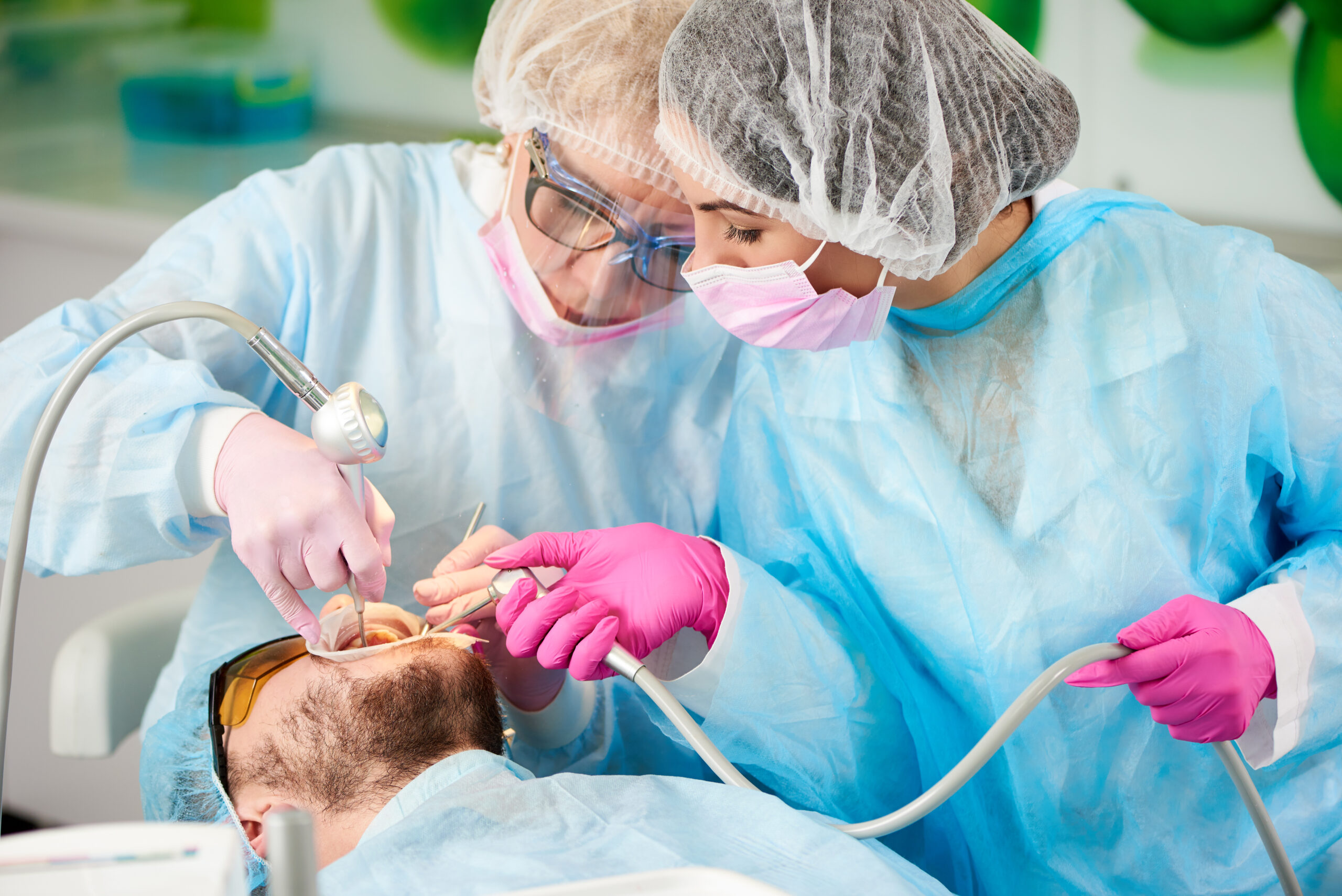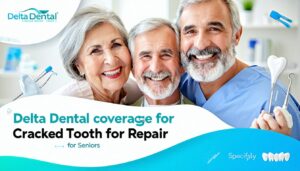When a sudden toothache, cracked tooth, or severe oral infection disrupts your daily life, you may find yourself in need of emergency oral surgery to restore both your comfort and well-being. Choosing a knowledgeable, compassionate, and advanced dental practice can make a remarkable difference in your recovery. At Vivid Dental, we strive to offer the supportive environment, high-tech approach, and reliable expertise you deserve when facing the unexpected challenges of oral surgery. In this article, you will discover what to expect from an emergency oral surgery procedure, how to prepare for it, and why Vivid Dental’s modern, aesthetically focused approach can help put you on the path to renewed oral health.
From the moment you walk through our doors, our team works to ensure you feel confident and informed about your treatment. By combining advanced dental technology with time-tested clinical methods, we aim to address your immediate concerns while also helping you achieve long-term results. We understand that dental emergencies can bring uncertainty and anxiety, so our goal is to guide you through every step, ensuring you have the support and knowledge necessary for a successful outcome.
In the sections that follow, you will explore the key aspects of emergency oral surgery, ranging from your treatment choices and financial considerations to detailed steps for post-surgical recovery. Most importantly, you will gain clarity on how Vivid Dental prioritizes your individual needs to create a positive, empowering experience.
Understand emergency oral surgery
Emergency oral surgery refers to procedures performed on short notice to address acute dental or oral health issues, typically requiring urgent attention to alleviate pain or prevent complications. Whether you’re coping with a damaged tooth, severe infection, or an injury resulting from trauma, timely surgical intervention can help preserve your oral structures and support overall health.
- Common reasons for emergency oral surgery:
- Removing severely cracked or fractured teeth when repair is no longer an option
- Draining abscesses or treating advanced infections
- Extracting impacted or problematic wisdom teeth
- Repairing facial or jaw injuries
- Managing soft-tissue trauma (such as severe gum lacerations)
According to the Cleveland Clinic, immediate attention is crucial for several types of dental emergencies, including knocked-out teeth and abscesses, as swift care can significantly improve the chances of preserving your tooth or stopping the spread of infection (Cleveland Clinic). At Vivid Dental, we are prepared to handle these urgent situations by assessing your condition and suggesting the most effective course of action.
Our team’s commitment to using modern diagnostics allows us to detect issues quickly and accurately. Some of the techniques we may use to confirm the need for emergency oral surgery include digital imaging service and intraoral camera examination. By pinpointing the root cause of your pain or concern, we can recommend a surgical solution tailored to your needs.
Recognize your treatment options
When you are confronted with a dental crisis, it is helpful to know there are several potential options for emergency oral surgery, each designed to address specific problems. Your unique situation, combined with the condition of the affected tooth or tissues, will determine which treatment course we recommend.
Tooth extraction for irreparable damage
If a tooth has been damaged beyond repair, removing it may be the best way to maintain your overall oral health and prevent further complications. For instance, a severely broken tooth can pose a significant infection risk, especially if the fracture extends to the root or exposes tooth pulp. Extractions can be performed as both simple or surgical procedures depending on the complexity of the case.
After extracting the compromised tooth, you might explore treatments such as a dental crown placement or implant supported bridge service to restore function and aesthetics. According to research published by the NCBI Bookshelf, certain dental extractions involving infected supporting tissues come with a higher risk of complications, including excessive post-extraction bleeding (NCBI Bookshelf). This is why we place a strong emphasis on thorough pre-surgical evaluation and follow-up care.
Incision and drainage for abscesses
Dental abscesses are painful and can spread infection if not quickly addressed. Incision and drainage involves making a small incision to relieve pressure and remove infected fluid or debris. Afterward, the area may be irrigated with a sterilizing solution to inhibit further bacterial growth. If you suspect you have a serious infection, our team may recommend dental infection treatment, including antibiotics to help clear the infection.
Emergency root canal therapy
When decay or trauma compromises your tooth at the nerve level, a root canal can often be performed on an emergency basis to prevent extraction. During a root canal therapy procedure, the infected dental pulp is removed, and the inner tooth structure is cleaned, shaped, and sealed. This can help preserve your natural tooth while alleviating pain. A final protective restoration, often a crown, is then placed to reinforce strength and prevent future issues.
Soft-tissue repair
In cases of soft-tissue trauma, such as lacerations to your gums or cheeks, emergency surgery may be necessary to minimize bleeding, remove damaged tissue, or stitch wounds to promote faster healing. The ability to address these injuries promptly often prevents infection and reduces the risk of complications.
Temporary and permanent restorations
If lost or broken dental restorations are causing pain, infection, or functional problems, we can secure temporary solutions until a permanent restoration is ready. This could include lost crown repair or lost filling repair to restore comfort while finalizing a more durable approach.
Each of these treatments emphasizes urgent relief while preserving as much of your natural oral structures as possible. By understanding your treatment options, you can feel better prepared to discuss with our dental professionals which course of action best meets your needs.
Rely on advanced technology
At Vivid Dental, we believe in using cutting-edge dental technology to support our patients through emergency oral surgery. With innovations such as 3d cone beam imaging and advanced intraoral scanning systems, we are able to capture high-resolution, three-dimensional images of your teeth and surrounding structures. This level of precision offers several key benefits:
- Enhanced accuracy in diagnosing the cause and extent of dental emergencies
- More precise treatment planning to minimize risks and complications
- Minimally invasive surgical approaches when possible
- Faster, more efficient procedures with reduced discomfort
By employing these sophisticated methods, we can quickly design a plan that fits your specific situation. This not only increases your comfort during the procedure but also contributes to shorter recovery times.
Know what to expect
Having an idea of what happens before, during, and after your emergency oral surgery can alleviate much of the uncertainty that comes with a dental crisis. While experiences vary based on your unique needs, the following is a general overview to help you feel more confident about the process.
Initial consultation and triage
In an emergency, your priority is to have a thorough examination as soon as possible. We will gather vital information about your medical history, dental symptoms, and any medications you might be taking. In some situations, digital xray diagnostics or other imaging may be used on the spot to identify hidden fractures, infections, or tissue damage.
If you have not scheduled an appointment yet, calling our office for an emergency dental appointment ensures we are ready to address your needs promptly. Keep in mind that certain emergencies, such as knocked-out teeth or intense swelling, call for immediate action within a narrow timeframe.
Anesthesia and sedation
During the surgery, you can expect local anesthesia to numb the affected area. For complex or highly invasive procedures, sedation may be recommended to ensure your comfort throughout the process. This can include oral sedation, IV sedation, or other options, depending on factors such as treatment length and your overall health.
Most procedures aim to minimize pain and discomfort while maximizing your safety. The duration of the surgery can range from 30 minutes to several hours, depending on the complexity of the issue (Custer Creek Dental).
Procedure and closure
After ensuring you are relaxed and fully numb, your dentist or oral surgeon will proceed with the necessary steps, whether that involves extracting a damaged tooth, repairing bone structure, stitching soft-tissue wounds, or performing a root canal. If an incision is made, the area will be carefully closed at the end of the procedure.
Your dentist will apply any necessary dressings or place specific appliances to protect the surgical site. These measures help control swelling, bleeding, or infection risks.
Post-operative guidelines
Once the surgery is completed, you will receive detailed, written post-operative instructions to guide your recovery. Topics often include:
- Pain management with prescribed pain relievers or pain relief treatment options
- How and when to apply ice packs to minimize swelling (Arizona Oral & Maxillofacial Surgeons)
- Diet recommendations, such as soft or liquid foods initially
- Proper oral hygiene instructions, including gentle brushing and rinsing after the first 24 hours
- Follow-up visits to monitor healing and remove sutures if required
Being well-informed about these steps can make the difference between a stressful or a smooth recovery period.
Benefit from expert care
Choosing Vivid Dental for your emergency oral surgery comes with the assurance that you are in the hands of skilled professionals dedicated to continual learning and advanced clinical practices. Our commitment to patient-centered care shines through in every interaction, ensuring that you receive:
- Thorough evaluations that identify the most appropriate surgical approach
- Honest, transparent conversations about the risks, benefits, and alternatives to each option
- Compassionate guidance tailored to your unique situation, recognizing that every emergency is different
- Regular follow-up appointments to ensure your surgical site heals properly
Additionally, we recognize the importance of aftercare—even once your immediate crisis is resolved. Depending on the nature of your surgery, we may schedule a routine dental checkup a few weeks or months later to confirm that you are maintaining optimal oral health.
Explore your financial considerations
One of the most common concerns with emergency oral surgery is the cost. When facing an urgent dental procedure, you might feel understandably worried about finances. It’s important to know there are ways to manage expenses while obtaining high-quality care.
Insurance coverage
Dental insurance can significantly reduce the out-of-pocket cost for emergency procedures, but coverage levels often vary depending on whether the treatment is classified as restorative, endodontic, or surgical. Reviewing your policy and communicating closely with our office helps you gain clarity on potential costs.
Certain plans may cover:
- Extractions for irreparable teeth
- Root canal therapy for infected or abscessed teeth
- Surgical procedures targeting severe gum or bone infections
We will work with you to determine coverage details, making sure the paperwork is handled accurately and efficiently.
Cost of procedures
Emergency oral surgery can be costly, largely because the problem is urgent and the procedures themselves can be technically involved. According to the Synchrony Average Procedural Cost Study, the approximate average costs for common dental emergencies are:
| Procedure | Average Cost |
|---|---|
| Simple filling for a toothache | $139 to $976 |
| Molar root canal with porcelain crown | Around $2,736 |
| Surgical extraction + implant for repair | About $3,058 |
These figures vary based on factors like the complexity of your case and your location (Synchrony Average Procedural Cost Study). We do everything possible to give you a precise cost estimate, so you can plan accordingly.
Payment plans and financing
If your plan does not cover the total expense of your treatment, or if you do not carry dental insurance, you may explore alternative financing like dental credit cards or in-house payment plans. At Vivid Dental, we value your well-being and aim to remove financial barriers so you can access timely and professional care.
Prepare for your surgery
When you know an emergency oral surgery is imminent, taking the time to prepare can reduce your stress levels and help the procedure go more smoothly. Even if your surgery is scheduled for the same or following day, there are still practical steps you can take.
Discuss your medical history and medications
It is crucial to inform your dentist about all medications you are currently taking, including prescriptions, over-the-counter drugs, and supplements. Some substances can interact with anesthesia or increase the risk of bleeding. Conditions like diabetes or heart issues may also affect the timeline and method of the surgery.
Arrange transportation and support
Depending on the type of anesthesia you receive, you may be unable to drive for several hours or even the rest of the day. Ask a family member or friend to bring you to your appointment and take you home. If needed, gain extra assistance at home, especially if you anticipate needing help with meal preparation, controlling bleeding, or changing dressings.
Follow eating and drinking guidelines
Your dentist may instruct you not to eat or drink for several hours before surgery, especially if sedation or general anesthesia is required. Fasting helps reduce the risk of nausea and complications related to anesthesia. Following these instructions is key to a successful procedure (Image Dental of Stockton).
Set up a recovery space
Before heading to your appointment, gather items that will make your recovery easier:
- Extra pillows for propping your head up in bed
- Soft foods such as yogurt, soup, or smoothies
- Over-the-counter pain relievers if recommended
- Gauze or clean cloths to manage bleeding
- Phone chargers, entertainment options, or comfort items
By having all these essentials ready, you can focus on rest and proper healing once you return home.
Recover with confidence
Proper aftercare greatly influences the success of an emergency oral surgery. While specific instructions differ depending on the type of procedure, the following guidelines are useful starting points for many patients.
Control bleeding and swelling
Some bleeding is normal up to 24 hours after oral surgery. In most cases, placing a gauze pad over the surgical area and applying gentle pressure will help control bleeding. Replace gauze every 30-45 minutes until bleeding subsides (Arizona Oral & Maxillofacial Surgeons). Swelling tends to peak around the second day; to minimize it, apply a cold compress for 15-minute intervals during the first 48 hours. Elevating your head with pillows can further reduce facial swelling.
Manage pain and medication
Prescription or over-the-counter pain relievers are often recommended to help you stay comfortable. If you have been given antibiotics, be sure to complete the entire course, even if you feel better early on. Unfinished antibiotic regimens can increase the risk of infection returning.
If you find that discomfort persists despite following medication guidelines, or if you notice any symptoms like persistent swelling past a week or fever, reach out to us for a prompt evaluation.
Maintain hygienic practices
Unless told otherwise, you can usually begin gently brushing your teeth and rinsing 24 hours after your procedure. Avoid vigorous spitting, which can dislodge the protective clot forming at your surgical site. Some patients may require special mouth rinses, while others can use mild saltwater rinses to keep the area clean.
Follow-up appointments
To ensure that healing is on track, schedule a follow-up visit as advised. This check-up may involve removing stitches or gauging the stability of the blood clot. Even minor concerns spotted early can be resolved more easily than if they remain unnoticed.
Experience the Vivid Dental difference
Your mouth is a crucial part of your overall well-being and personal confidence. At Vivid Dental, we embrace an empathetic, informative approach that acknowledges the stress you may feel in the face of a dental emergency. Our approach includes:
- High-tech diagnostics to accurately pinpoint problems
- Aesthetic-focused results that preserve or enhance your smile
- Tailored patient education for every step of the process
- Compassionate assistance that addresses your worries or fears
We also emphasize prevention strategies post-surgery. For instance, scheduling routine procedures such as a professional teeth cleaning or fluoride treatment can fortify your teeth and gums, making future emergencies less likely. Additionally, regular comprehensive oral exam sessions, combined with oral cancer screening, help us detect potential issues at earlier, more manageable stages.
Once your surgical site is fully healed, you may also consider restorative services like dental crown placement or even porcelain crown restoration to ensure lasting comfort and confidence in your smile.
Review frequently asked questions
Below, you will find five common questions about emergency oral surgery to help guide you further toward informed, stress-free care.
-
How do I know if my dental issue is a true emergency?
A severe toothache, intense swelling, visible abscess, or sharp pain that disrupts your daily activities can be signs of a dental emergency. Additionally, incidents like a knocked-out or partially dislodged tooth require immediate attention. If you’re unsure, it’s best to call our office and describe your symptoms so we can advise you on the next steps. -
What should I do if a tooth is knocked out?
Time is critical when a tooth is knocked out. According to the Cleveland Clinic, there is a high chance of saving it if you see a dentist within one hour (Cleveland Clinic). Rinse the tooth gently without scrubbing, and if possible, place it back in its socket or keep it in a container of milk or a special tooth-preserving solution until you reach our office. -
Will I experience a lot of pain during and after surgery?
Every effort is made to keep you comfortable during the procedure through local anesthesia or sedation. Post-surgery soreness varies depending on the severity of your condition and the type of surgery. We send you home with pain management strategies and sometimes prescribe medications to minimize discomfort. Feeling slight pain and swelling is normal, but it typically subsides within a week or two. -
How can I control the cost of emergency oral surgery?
Reviewing your dental insurance policy is the first step. Many plans cover portions of emergency treatments like extractions, root canals, and incision and drainage. If insurance doesn’t fully cover your costs, ask about financing options. Our goal is to find solutions that align with your budget while giving you the care you need. -
What complications should I watch for during recovery?
While complications are rare when post-operative instructions are carefully followed, keep an eye out for persistent bleeding, severe or worsening pain, or signs of infection such as fever or pus drainage. If you experience persistent pain that radiates to your ear or other teeth, it could indicate a condition like dry socket. Contact our office for an assessment if you suspect any complication.
By having answers to these frequently asked questions, you can feel more prepared and assured about your upcoming or potential procedure.
Emergency oral surgery can be an unexpected turning point in your oral health journey, but it doesn’t have to be overwhelming. With compassionate care, high-tech diagnostics, and expert clinical solutions, Vivid Dental is fully equipped to help you face the unexpected with confidence. Whenever you experience a dental emergency, know that our team is ready to step in, listen to your concerns, and guide you to the treatment you need for a healthier, happier smile.










